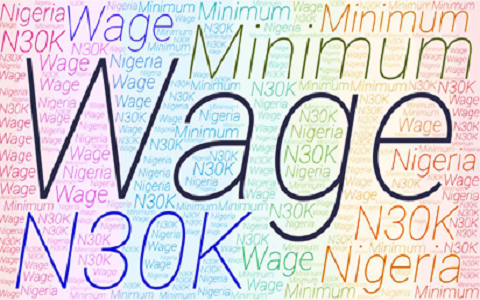

Debate on removing minimum wage from exclusive to concurrent list is a major concern to workers in Nigeria as the issue of welfare, which often puts labour unions at loggerheads with government or employers in the private sector, appears to be at stake.
Members of the House of Representatives, who embarked on the debate hinged their argument on the inability of some states to pay the current national minimum wage of N30,000.
The Reps action drew the attention of Nigeria Labor Congress (NLC) and Trade Union Congress (TUC), which demanded that the lawmakers should kill the bill which had passed for second reading.
In the 1999 Constitution of the Federal Republic of Nigeria as amended in 2010, item 34 on the Exclusive List place the obligation of prescribing a national minimum wage for the Federation and industrial arbitration on the Federal Government.
Other items in the cadre include labour, trade unions, industrial relations; conditions, safety and welfare of labour and industrial disputes.
What the House of Reps is seeking to do is to amend the 1999 Constitution to allow states determine minimum wage, and perhaps the organized labour viewed their action as that of working in tandem with state governors.
In April 2019, President Muhammadu Buhari signed the current national minimum wage bill of thirty thousand naira into law, thus making the bill an Act of Parliament.
By legislation implementation was expected to take effect 18th April 2019.
While federal government fulfilled its obligation in this regard, some states did not fully implement the wage regime, thus sparking the call by Nigeria Labour Congress for workers in affected states to down tool in February this year.
No doubt, the current move by the House of Representatives might further aggravate tension, and heightened industrial disputes in states where negotiations could still be ongoing to resolve wage bill.
Aside this, reports indicate that in Kogi, Abia, Imo and Benue which are the states within the radar of labour unions, there is still possibility of reaching an agreement on implementation of the national minimum wage.
Current economic challenges, soaring prices have culminated into lean purses for workers, thus creating more space for potential agitation for payment of minimum wage.
However, it is imperative to stress that the issue of inability to pay workers wage bill by some states is an indication of over dependence on the central government’s monthly allocation.
Another cogent factor is the apparent lack of willingness to address wastage and adopt prudent management of income from the federal level by shedding off bloated political appointees.
It has also become essential that governors raise internally generated revenues, IGR, in their domain by tapping into local resources to meet the obligation of the national minimum wage to workers.
Olukemi Akintunde